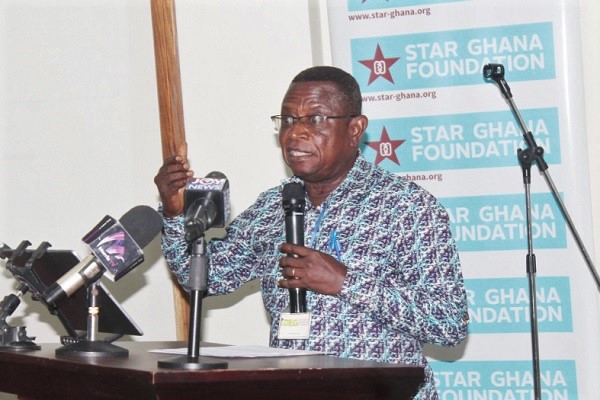
CSOs take stock of aborted referendum
Civil society organisations have gathered to reflect on lessons and share their experiences of the aborted December 17, 2019 referendum.
The referendum was to amend Article 55(3) of the 1992 Constitution to legalise the participation of political parties in the election of district chief executives.
Advertisement
However, on December 1, 2019, President Nana Akufo-Addo, in a broadcast to the nation, called it off because he said the consensus for a successful "yes" vote was lacking.
Partners
The meeting, organised by STAR Ghana and the Institute of Democratic Governance (IDEG), also brought together the Ghana Journalists Association (GJA) and NORSAAC, a civil society organisation based in the northern regions of Ghana.
All the groups partnered and worked together for a successful referendum before it was aborted.
Representatives of the European Union, the British High Commission, Oxfam, political parties, the Institute of Local Government Studies and the National Association of Local
Authorities Ghana (NALAG) were also at the meeting which provided the forum for the participants to reflect, dialogue and learn.
Perspectives
Sharing the perspectives of IDEG, a Senior Researcher, Mr Kwesi Jonah, said the fact that the exercise had been aborted did not mean all hope was lost in the bid to elect local authorities.
He said even after the announcement by the President, the Chairman of the National Democratic Congress (NDC), Mr Ofosu Ampofo, had written to the President indicating their position to dialogue on the issues with him.
Mr Jonah said a highlight of the referendum was that there had been no legal tussles over the issue between individuals.
However, one pitfall of the process, accounting for it being aborted by the President, was the fact that campaigners for the involvement of political parties in the election of local authorities did not have the commitment of those at the helm of political party affairs.
Also, consultations by partners were good but not enough to get all on board.
He said the misconception that the referendum was to change the Constitution to "elect local authorities" instead of a change of Article 55(3) to make legal the participation of political parties in local governance elections was the wrong message that went out.
Mr Jonah said at a point in time, it seemed IDEG was taking sides; however it was IDEG's long-term commitment after the Constitution review process to engage for better participatory engagements in local-level elections.
Reflection
A representative of STAR Ghana, Mr Frank Kweku Amoateng, said the reflection was important for the next step.
He advocated the documentation of lessons and experiences to serve as a blueprint for the future.
The Gender and Governance Manager of NORSAAC, Ms Kawusada Abubakari, in her review mentioned the fact that there was no communication about how the government was funding the referendum.
There were also some gaps in communication to the vulnerable, including the hearing-impaired and blind, with no information at all about how they were to participate in the process.
A representative of the GJA, Ms Rebecca Ekpe, said the GJA collaborated with civil society organisations with the research base to lobby and sensitise for a 'yes' vote.
She said various programmes to ensure an inclusive local governance through opening up participation in local party politics were rolled out.
According to her, a review of the efforts of the GJA showed a dearth in the leadership of the process, building consensus and the vulnerable being left behind in the process.
Writer's E-mail: [email protected]




